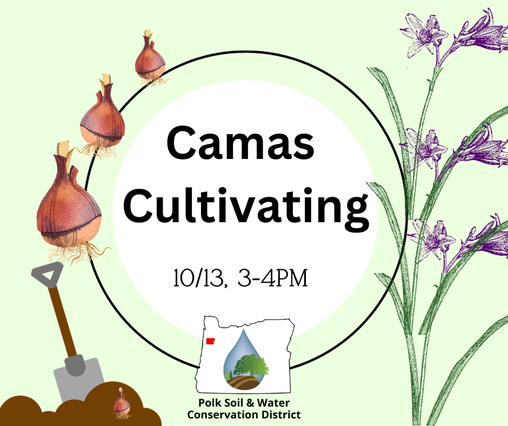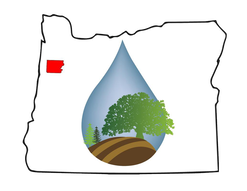When: Friday, October 13th, 3pm-4pm
Where: Delbert Hunter Arboretum - 631 SW Park St. Dallas, OR 97338
Cost: Suggested donation of $20 to the Delbert Hunter Arboretum
(if you wish to make a donation to the Arboretum, it can be done on the day of the event. They accept cash and check)
Where: Delbert Hunter Arboretum - 631 SW Park St. Dallas, OR 97338
Cost: Suggested donation of $20 to the Delbert Hunter Arboretum
(if you wish to make a donation to the Arboretum, it can be done on the day of the event. They accept cash and check)
Why is camas important?Cultural management: Traditional management utilized a combination of transplanting, weeding, hoeing and burning. After flowering and producing seed, camas goes dormant until winter when leaf growth begins. This is when camas can be transplanted to revitalize a patch. Cultivation increases bulb size, productivity and range.
Ethnobotany: Camas is a native plant and traditional first food for the native people of this land. The bulbs were traditionally dug in large quantities and pit-roasted until they became sweet. Camas bulbs are still harvested today. Wildlife Support:
|
How can you help?Join us for camas cultivating at the Delbert Hunter Arboretum!
We will begin with a brief presentation about camas propagation, cultivation and ethnobotany. We will dig and revitalize a camas patch at the Delbert Hunter Arboretum. You will take home camas bulbs to plant on your property, increasing the range of this important native plant. Tools and gloves will be provided or you can bring your own. This event will go rain or shine, so please dress accordingly. All participants will be required to sign a waiver. We will meet at the main building at the Arboretum. This event is organized by the Polk Soil and Water Conservation District, hosted by the Delbert Hunter Arboretum and led by Anna Ramthun, Natural Resources Specialist for the Confederated Tribes of Grand Ronde. |


